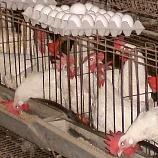(BRUSSELS) – The European Commission called Tuesday for vigilance by EU Member States’ authorities and Europe’s poultry sector and said bio-security needed to be stepped up on poultry farms.
Following confirmation on 4 November of the highly pathogenic avian influenza of subtype H5N8 on a turkey fattening farm in Tótkomlós, Békés County, the Hungarian authorities immediately applied control measures as laid down in EU legislation.
This outbreak is caused by the same strain of Asian origin detected in a wild bird in the same area the week before.
This and other outbreaks throughout the EU mark the seasonal circulation of avian influenza viruses. The protective measures to respond to the outbreak for the affected areas were reviewed and supported at the meeting of the Standing Committee on Plants, Animals, Food and Feed (PAFF) on Monday 7 November.
During the same meeting, the Commission also presented an update of EU control measures to combat the spread of African swine fever (ASF) in Latvia, Lithuania and Poland, following the recent inter-ministerial meeting which took place in Warsaw.
The new measures take account of the positive evolution of the situation in the domestic pig sector in Latvia and Lithuania, thus lifting some of the existing restrictions on pig farming.
At the same time new ASF cases were registered in wild boar in Latvia and Poland, leading to an adjustment of the restricted areas in these two countries.
The Commission insisted on the importance of higher biosecurity in pig farms and the need for targeted depopulation measures for wild boars avoiding counter-productive massive hunting.



